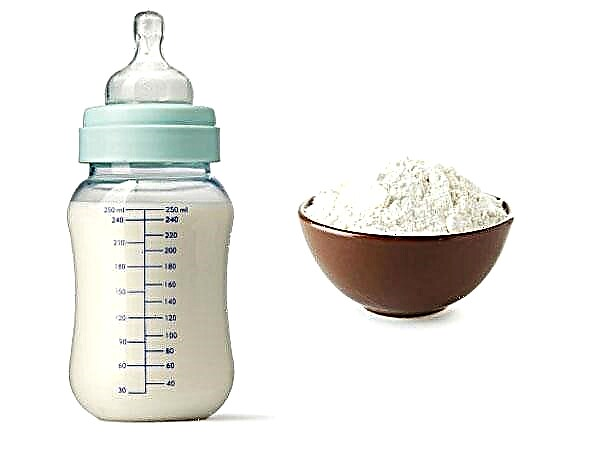While waiting for a child in a woman's body, the need for vitamins and minerals increases by 1.5 times. In second place (after folic acid) at this crucial time is the need for vitamin E (tocopherol). In addition to a beneficial effect on all body systems, it regulates the processes of fertilization and bearing a baby. There are 5 basic foods that can be consumed daily to meet your daily need.

Benefits of Vitamin E
Vitamin E is a fat-soluble antioxidant. It neutralizes the oxidative effect of free radicals, prevents various cell pathologies, including cancer. In addition, vitamin E:
- slows down the aging process;
- enhances immunity, protects against viral and bacterial infections;
- improves tissue regeneration;
- stimulates the formation of capillaries and improves tone, vascular permeability;
- improves blood circulation;
- increases the recovery capabilities of the body;
- reduces the formation of scars, scars on the skin;
- reduces body fatigue;
- reduces the manifestation of seizures;
- helps to lower blood pressure;
- normalizes blood clotting, prevents its increased level, participates in the treatment of thrombotic diseases;
helps to reduce blood sugar, is part of the complex treatment of diabetes;
together with vitamin C has a high anti-cancer effect on the body; - promotes the absorption of vitamin A.
The value of vitamin E in preparation for conception:
Vitamin E plays an important role during planning and the first trimester of pregnancy. Its other name is tocopherol, which translates as “progeny”:
- Maintains normal hormonal levels, due to which the maturation of the egg and the onset of ovulation occurs;
- Promotes the fertilization of the egg and its fixation on the wall of the uterus;
- In the male body, tocopherol accelerates sperm production and improves sperm quality.
Vitamin E requirements during pregnancy:
- Participates in the normal formation and maturation of the placenta. Reduces the likelihood of placental abruption;
- Normalizes blood flow between mother and fetus;
- Protects against spontaneous abortion (miscarriage);
- Protects the embryo from negative influences, participates in the formation of all fetal systems;
- Reduces fatigue during pregnancy;
- Reduces the incidence of seizures during pregnancy.
For women preparing for conception, as well as for pregnant women, vitamin E is prescribed by a gynecologist. However, synthetic vitamin E is still less accepted by the body than its natural sources. There are natural sources of this "fertility vitamin" in nature. We present a list of 5 foods, daily intake of which can satisfy the body's daily need for it.
1. Vegetable oils

Wheat germ oil is a treasure trove of vitamin E. A tablespoon of this oil per day will provide the body with the daily need for tocopherol.
Other vegetable oils containing this vitamin are also helpful. Let's present them in descending order: sunflower, cottonseed, corn, olive, soybean oil. Cold-pressed unrefined oils are much more useful because they retain the maximum amount of natural ingredients.
2. Nuts

The greatest amount of vitamin E is contained in almonds, while hazelnuts are a little less rich in them. Next come peanuts, pistachios and cashews. There is 10 times less vitamin E in walnuts. than in almonds. Eat one to two handfuls of raw nuts a day to provide the body with the necessary amount of tocopherol. In addition, raw sunflower, sesame and pumpkin seeds are rich in vitamin of childbearing.
3. Rosehip and sea buckthorn

These two fruits are also rich in tocopherol. They also contain a lot of vitamin C, which strengthens the immune system. Scientists have proven that vitamin E is better absorbed by the body if it comes from a diet containing vitamins A and C. Sea buckthorn and rose hips are excellent at this task.
Prepare vitamin tea from rose hips: mash dry fruits, pour boiling water and leave to steam in a thermos for a day. It is better to crush sea buckthorn with sugar and dilute with water.
4. Leafy vegetables

Spinach and green sorrel are in the first place in terms of tocopherol content among leafy vegetables. They can be eaten raw, cut into salad, blanched. It is also high in vitamin C. Eating leafy vegetables will prevent constipation, which is common in pregnant women.
5. Seafood

The highest seafood in terms of tocopherol is eels and squid. From fish, these are salmon and pike perch. Seafood is also rich in iodine, calcium and phosphorus, which the body needs. Seafood must be cooked for a short time. This way they retain the greatest amount of vitamins and minerals.
Another list of foods that contain vitamin E:
- green turnip;
- Collard greens (kale)
- raw chard;
- mustard;
- Pine nuts;
- avocado;
- broccoli;
- parsley;
- papaya;
- olives;
- eggs;
- whole grains;
- soya beans.
Having these food products on the table every day, the expectant mother will be able to fully provide herself and her baby with the miraculous vitamin E.



